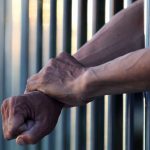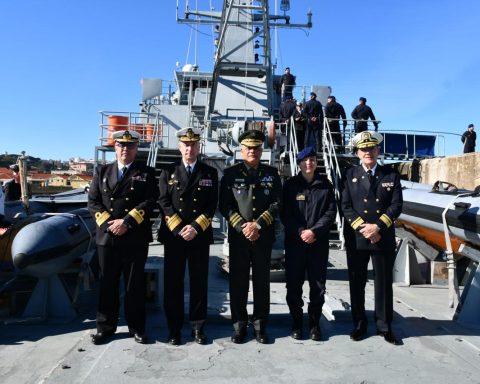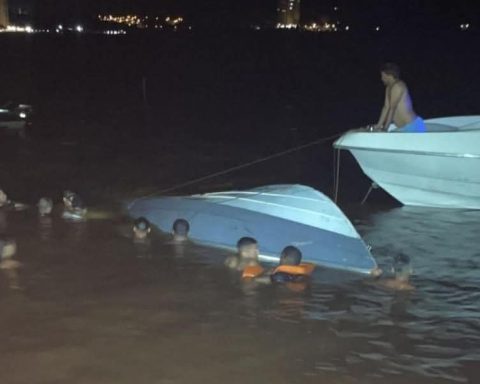A couple of weeks ago, parliamentarians began to postulate the need to declare a State of Constitutional Exception in parts of the Metropolitan Region, in particular, in the heart of the capital, the commune of Santiago. That idea did not generate much interest until early Thursday morning when the death of First Corporal Gabriel Palma was confirmed after receiving two bullet wounds to his face.
Now even among parliamentarians of the ruling party there are those who postulate that it would not be a bad idea to decree a State of Exception, since it has shown positive progress in the north, as the president of the Chamber of Deputies and Deputies, Vlado Mirosevic, said. The Minister of the Interior, Carolina Tohá, declared that: “We do not rule out any type of tools.”
The political analyst, academic and director of the School of Government and Communications of the Central University, Marco Moreno, maintains that the measure of the State of Exception would mean escalating the climate of fear that can settle in the citizenry and would also imply a difficulty in governing the region.
-What viability does the government have to implement a state of exception?
-From the practical point of view, they can do it because the parliamentarians, especially from the opposition who have installed the issue, could put the votes in Parliament. What is clear is that this would mean escalating in the climate of fear thatue can be installed in citizenship. We are not in a position to escalate the conflict by decreeing the State of Exception.
This would make it difficult to govern the region from the point of view of public order. It would be a very bad sign about the government’s ability to deal with these problems.
-What is the political effect of applying this measure?
-Symbolically it would mean the inability of the Government to contain this crisis of order and security, as is the case in Araucanía or in the north. So, decreeing a State of Exception in the Metropolitan Region would imply that the Government is insufficient to be able to prosecute and provide a solution to a public order problem. Of course, it is a structural problem that is not going to be solved with transitory measures. Public order and security problems require complex solutions, not simple solutions like those put forward by the opposition.
– What can the government do in the face of this wave of demands on security?
-The sign of intervening in 30 communes that have high levels of insecurity is good, that goes in the right direction. The Government, by promulgating the law today, quickly gives the police a tool, they are a set of measures that go in that direction and that allow to lower the sensation that the opposition and some media are installing about an ungovernable climate of public order and security in the region.
-How do these murders affect the political scene?
-What we have seen is a gain for the Carabineros institution in terms of political support. Not only the opposition supports them, the Government has also squared with the institution. We saw the former presidents at Cape Palma’s wake. These are political signs of support for the institution, which has never had a high level of political support. Let’s see if that achieves a change in public opinion because it is a polarizing factor just one month before the election of Constitutional Councilors. Obviously, here is an attempt by the opposition to take advantage of the public order and security situation electorally.
-Is it the moment of the right before the elections of May 7?
-It is the political moment that they are generating. Electoral climate issues to obtain an electoral result that is satisfactory to them. The people are going to evaluate, they are not only going to elect directors, but they are going to evaluate the Government in this matter. The public order and security agenda fits the opposition like a glove.
















